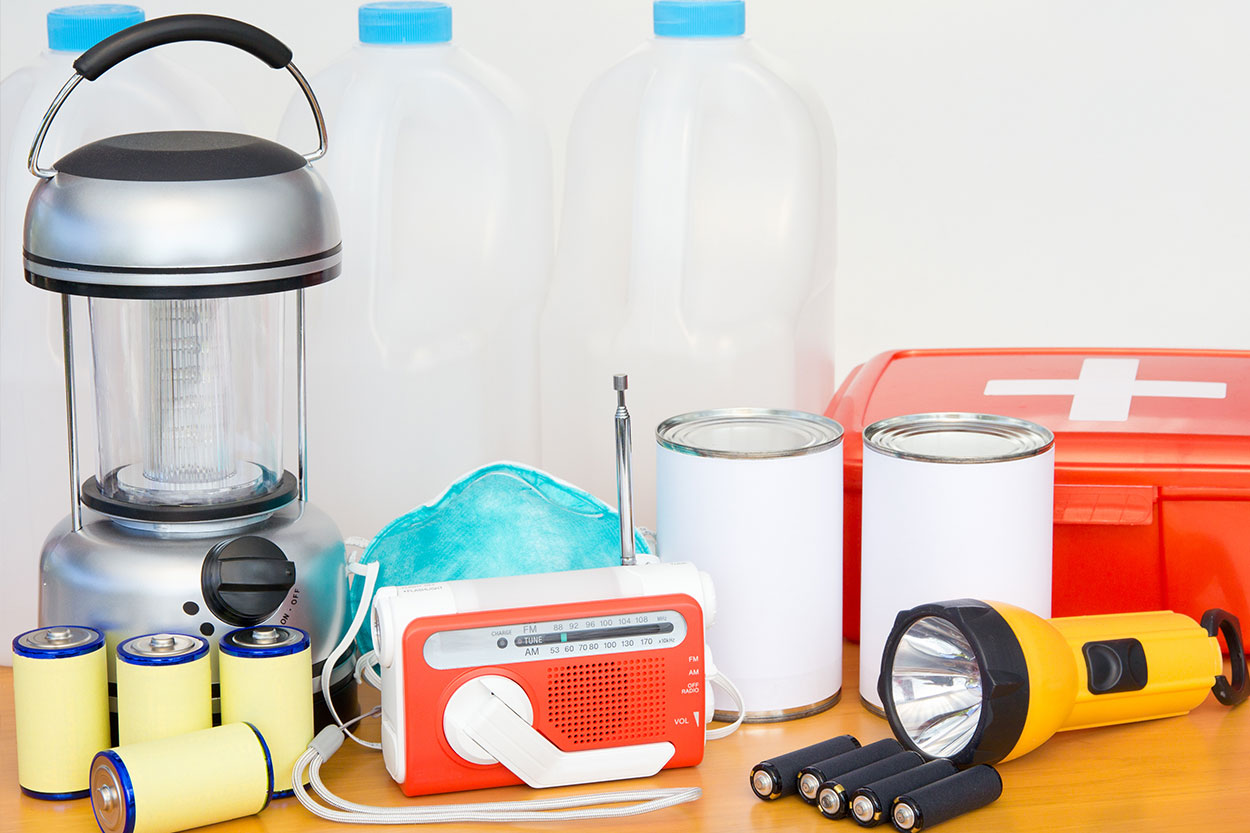Thunderstorms with high wind is the leading cause of a power outage. Depending on what kind of damage is done to the lines, poles and even the substations, the length of time to restore power can vary. Below, we've outlined what you can do now to prepare for an outage and what to do during and after.
Before:
- Take an inventory of the items you may need during an outage. This includes flashlights, extra batteries, bottled water and nonperishable food.
- Keep a thermometer in the refrigerator and freezer so that you can know the temperature when the power is restored to determine if your food has gone bad.
- If you rely on a landline phone, check to see if it will work during a power outage and how long battery backup will last.
- Talk to your medical provider about a power outage plan for medical devices powered by electricity and refrigerated medicines. Find out how long medication can be stored at higher temperatures and get specific guidance for any medications that are critical for life.
- Sign up for local alerts and warning systems. Monitor weather reports.
- Bookmark NREMC's outage map and Facebook page so you can keep updated on restoration process.
- Purchase a phone charger for your car so you can still charge your phone when needed.
During:
- Keep your freezer and refrigerator closed. The refrigerator will keep food cold for about four hours. A full freezer will keep the temperature for about 48 hours. Use coolers with ice if necessary.
- Turn off or disconnect appliances and electronics just in case there are momentary “surges” or “spikes” during restoration.
- Leave one light on so that you’re able to see when the power is restored.
- Check on your elderly neighbors.
- To avoid carbon monoxide poisoning, keep generators, camp stoves, or charcoal grills outdoors and at least 20 feet away from windows. Never use a gas stovetop or oven to heat your home.
- Go to a community location with power if heat or cold is extreme.
After:
- Determine if you should discard the food in your refrigerator and freezer. Food that has been exposed to temperatures 40 degrees or higher for two hours or more, or that has an unusual odor, color, or texture should be thrown out.
- If the power is out for more than a day, discard any medication that should be refrigerated, unless the drug’s label says otherwise. If a life depends on the refrigerated drugs, consult a doctor or pharmacist and use medicine only until a new supply is available.
- Reset digital clocks, alarms and network routers if needed.
- If you opened your automatic garage door manually you’ll need to reconnect the door to the opener.
- If you have a basement, check it for flooding if the power outage was the result of a storm.
- Replace any items in your emergency kit that you used

